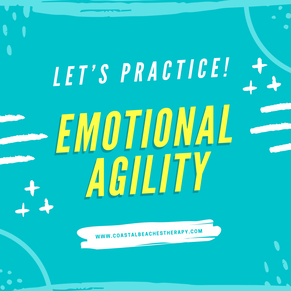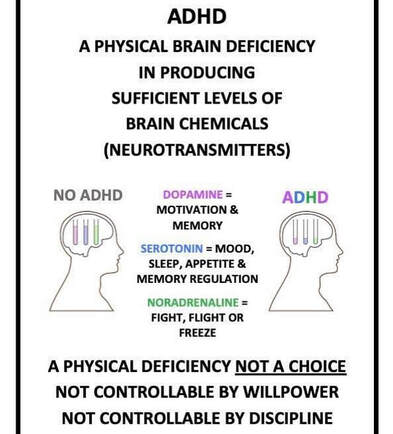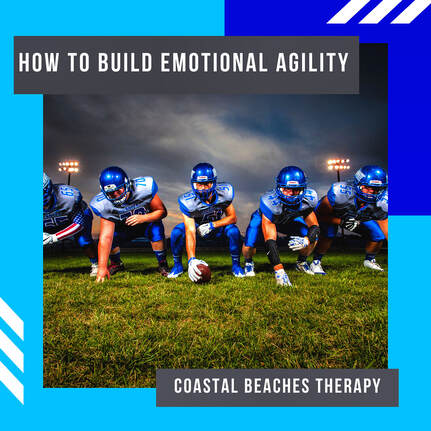|
Here are some of the basic things to keep in mind about Emotional Agility (EA):
You can become your own performance coach if you would just listen to what your mind and body are trying to tell you. You have the power already inside of you. Now go access it!
I am sharing this video clip for the athlete in the back who may just miss this important message.
I firmly believe that each time an athlete speaks up about mental health, they are helping to lay a foundation, brick by brick for the future of mental and physical wellness in sports. And just in this moment, two successful athletes came together, showing the rest of the world jut how powerful vulnerability and openness about mental health can be. This takes good sportsmanship to an entirely new level and I am hopeful for the future of sports and mental health. Persons who are clinically diagnosed with Attention deficit/hyperactivity disorder (ADD/ADHD) tend to regulate by doing and/or reacting. To clarify, I am referring to a reaction or behavior that is often done “impulsively” as an effort to decrease symptoms of physical discomfort and irritability (e.g overthinking, worrying, fidgeting, over-eating).
This is because there is a reduced amount of dopamine in the brain and dopamine production is neither steady or abundant in the synapses that moderate neurotransmitter production. And so, by reacting through various forms of action, the brain can enjoy a surge of dopamine, an increase in energy that improves attention, and a serotonin-based calming of restlessness. If you skipped the lecture above and want to get to the summary this is it: The ADD/ADHD brain must work harder to produce the neurotransmitters non-ADD/ADHD brains produce organically. In the words of Montell Jordan: “This is how we do it”...
1. Foster the courage and compassion to face your difficult and most challenging emotions. 2. Shift perspective. In other words, zoom out to take in a broader view. 3. Let go of “being right” and instead, choose curiosity. 4. Identify your why. What are your values? 5. Walk your why. Make daily choices that reflect what matters to you. 6. Grow. Take on challenges that push you to the edge of your ability, even when it’s uncomfortable. 7. Be open to change. Life changes. You change. Know when to grit and when to quit.
In recent news, Dallas Cowboys Quarterback, Dak Prescott had the courage to speak openly about his depression and grief. A sports columnist openly dismissed Presscott's vulnerability, going as far to say it weakens his leadership qualities. ESPN anchor, Scott Van Pelt responded to the remarks by using his voice to acknowledge the person behind the helmet who spoke openly and bravely about his mental health and emotional pain. Van Pelt also took the opportunity to use his platform to validate and empower athletes to speak openly about his or her mental health. Thank you Scott Van Pelt for saying what needed to be said. We must continue to build a culture within sports where we can drop the veil of shame in speaking openly about mental health. There is NO shame in mental health.
|
AuthorAmy Pope-Latham, LCSW is a board certified mental health professional in Ponte Vedra Beach, FL. Archives
December 2022
Categories
All
|




 RSS Feed
RSS Feed